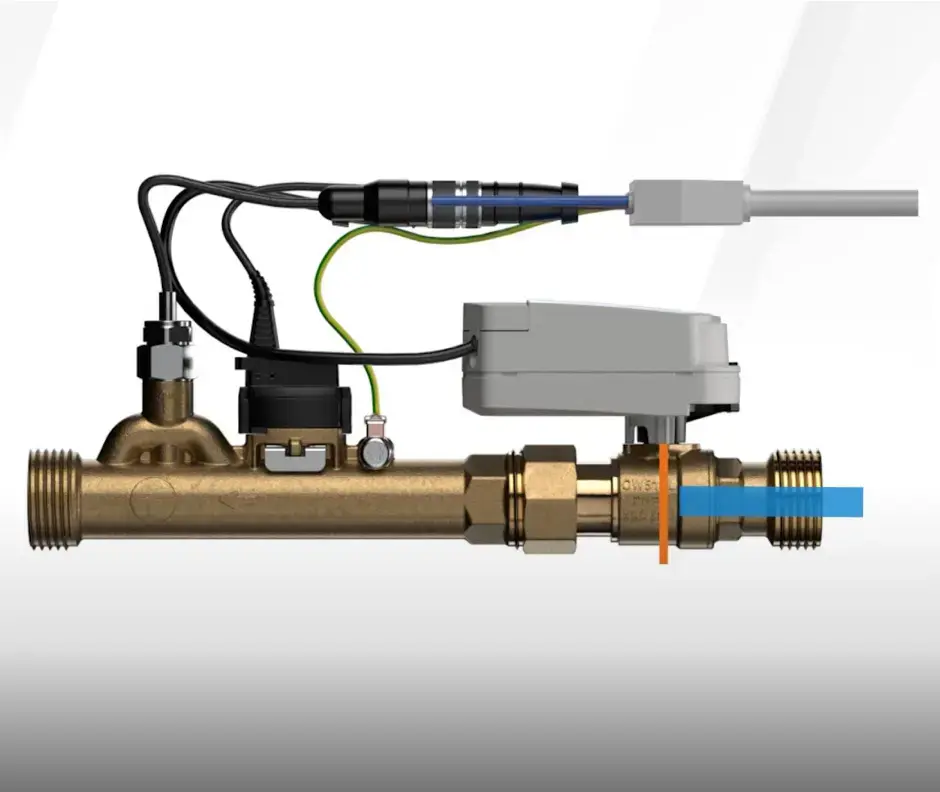Adding to Your Automation System: The Benefits of Water Shut-Off Valve Installation
- SecuraCore
- May 26, 2024
- 4 min read
Importance of Water Shut-Off Valve Installation
Water shut-off valve installation is crucial for your home's safety. Water damage can be one of the most expensive catastrophes a home can experience. These valves help prevent water damage in case of leaks or emergencies. Here are the key reasons why installing a water shut-off valve is important:
Prevents Water Damage: The valve can quickly stop the flow of water during a leak, minimizing the damage to your property.
Early Detection: Having a shut-off valve allows you to detect leaks sooner, preventing potential flooding or water wastage.
Convenience: It provides convenience by allowing you to shut off the water supply to a specific area without affecting the entire house.
Peace of mind: Knowing you have a shut-off valve installed offers peace of mind, especially when you are away from home.

Benefits of Automating Water Shut-Off
Installing a water shut-off valve can prevent costly water damage by quickly stopping leaks. With automation, this process becomes even smoother, as the valve can be controlled remotely. This not only safeguards your property but also saves you time and worry. Moreover, automating your water shut-off system can provide peace of mind when you are away from home, ensuring that any leaks are swiftly addressed, even when you are not there to intervene.
Enhancing Home Safety with Automated Water Shut-Off Valves
Automated water shut-off valves provide an extra layer of protection for your home by detecting leaks and shutting off the water supply automatically. These systems can prevent costly damage from leaks or burst pipes, giving you peace of mind when you're away from home. Installation of automated water shut-off valves is a proactive step towards securing your property and minimizing water-related emergencies.
Cost-Effective Solutions for Water Damage Prevention
Water shut-off valve installations offer cost-effective solutions for preventing water damage in your home. By investing in these systems, you can potentially save a significant amount of money on repairs caused by water leaks. Installing water shut-off valves can help detect leaks early and automatically shut off the water supply, minimizing damage. It is a proactive approach that can save you from costly water-related issues in the long run.
Factors to Consider Before Installing a Water Shut-Off Valve
Before you install a water shut-off valve, consider the following factors:
Location: Determine where the valve will be installed for easy access in case of emergencies.
Water Pressure: Ensure the valve can handle the water pressure in your system to prevent leaks or malfunctions.
Compatibility: Check that the valve is compatible with your existing plumbing system to ensure a seamless installation.
Professional Installation: It's recommended to have a professional plumber install the valve to guarantee its proper functioning.
Maintenance: Understand the maintenance requirements of the valve to keep it in good working condition and ensure its longevity.
Different Types of Water Shut-Off Valves for Automation
There are mainly three types of water shut-off valves for automation: ball valves, gate valves, and butterfly valves. Ball valves are commonly used due to their durability and reliability. Gate valves are sturdy but slower to actuate. Butterfly valves are quick to operate but may not provide as tight of a seal as ball valves. The type of valve you choose will depend on factors like the application, flow rate, and maintenance requirements.
Professional Installation vs. DIY Options
Professional installation of a water shut-off valve ensures proper setup and functionality. A professional can assess your system accurately, install the valve securely, and guarantee its effectiveness. On the other hand, DIY options provide a more cost-effective solution but may lack the precision and reliability of a professional installation. Consider your skill level and the complexity of your system when deciding between professional installation and DIY options.
How Automated Water Shut-Off Valves Work
Automated water shut-off valves work by detecting leaks or abnormalities in your water system and shutting off the water supply to prevent damage. These valves are equipped with sensors that monitor water flow and can be programmed to respond to specific conditions. They can also be paired with wireless, remote-water sensors strategically placed under appliances, that detect water and transmit their status to the main valve. When a leak is detected, the valve will automatically close, stopping the flow of water and protecting your property from potential water damage.
Maintenance and Troubleshooting Tips
To keep your water shut-off valve system running smoothly, it's essential to conduct regular maintenance. Here are some simple tips to help you troubleshoot any issues that may arise:
Regularly check for leaks or drips
Ensure the valve is properly sealed
Clean the valve and surrounding area to prevent buildup
Test the valve periodically to ensure it functions correctly
By following these maintenance and troubleshooting tips, you can prolong the lifespan of your water shut-off valve system while ensuring it operates effectively when needed.
Conclusion: Securing Your Home with Water Shut-Off Valve Automation
To sum up, installing a water shut-off valve automation system in your home can bring several benefits. It provides added security by swiftly stopping water flow in case of leaks or emergencies. This proactive approach can prevent costly damages and give you peace of mind knowing your home is protected. Additionally, the convenience of remotely controlling your water supply adds to the overall efficiency of your automation system. Remember, safeguarding your home with a water shut-off valve automation is a smart investment in protecting your property and ensuring a secure living environment.
.png)



Comments